Some folks’ lives roll easy
Some folks’ lives never roll at all - they just fall
-Paul Simon, ‘Some Folks’ Lives’
I hope I will not be misunderstood when I say that the cause of British decline, painfully evident to everybody in the country, is more spiritual and moral than it is political or economic. In saying this, I do not mean to suggest for a moment that we do not have severe, long-running, structural problems in our politics or economy - don’t get me wrong. But the more pressing concern is the pervading sense of malaise that has spread itself across the country like a miasma. A country that is confident in its own skin and which is animated by a shared sense of belonging can solve most practical problems in the medium-long term. But we not that sort of country; we are more or less its exact opposite. This does not bode well. There may be trouble ahead - and not, I’m afraid, a great deal of moonlight, or music, or love, or romance.
On an extended cross-country tour this summer, taking in swathes of the north of England, I found myself reflecting at length on our predicament. And I was struck, again and again, by the sense that this is a country which has a strong, if unstated, awareness that at some point in the recent past it lost something important - but that it does not really have the words to describe what that thing was, let alone the wherewithal to find it. If I could reach for inadequate and inaccurate metaphor, it is as though the country is plagued by the feeling that one gets when one has stood up and walked into a room in the house and forgotten why one did it or what one was intending to do there; or, alternatively, the sense that one gets when one finds oneself wandering around a supermarket with a vague notion that one is forgetting some item or other that one intended to buy but did not put on the shopping list. There was something ‘there’ once. But whatever it was has gone.
Where a problem is spiritual, as ours is, it must be confronted in spiritual terms. And it is important, then, that we reach for spiritual tools. We have to identify, and then properly mourn for, that which we have lost - and embrace the despair that arises from knowing that it will not return. This is because, as Kierkegaard teaches us, it is, paradoxically, only in acknowledging despair that we are able to hope. By knowing despair - by knowing that good things come to an end - we are reminded that we long for the eternal. In confronting contingency we are given the opportunity to reflect on that which does not change, or disappear, or finish. For Kierkegaard, this meant God, but it of course could be something more diffuse than the divine as such - that which is simply and unchangeably good, and true, and just, and right.
Kierkegaard was no critical theorist, and he sought to convey no political message. Despair allows us to acknowledge that there are things in the universe that are simply and unchangeably good, and true, and just, and right, but this acts as no call to arms or manifesto to revolution. The dead cannot be brought back to life and that which has vanished into the past cannot be recovered. But we can at least, through our despair, gain a clearer understanding of where we really are. And this in itself can help us to orient ourselves properly in responding to our predicament. The aim here is not to get ‘back on track’, if we were ever on the right one to begin with. It is rather to confront matters squarely, and honestly, so that we can reconcile ourselves to what has happened, and thereby reconnect with what it might mean to trust to hope once more.
In that spirit, then, bear with me while I indulge in a bit of mourning of my own.
The photo that appears at the top of this post was taken in the early 1980s by a photographer called Martin Parr, in my hometown of Wallasey. Wallasey lies at the end of the Wirral peninsula and faces Liverpool across the Mersey, and Ireland across the Irish Sea. I was raised in the area known as New Brighton - a seaside resort of faded elegance which, at that time, was at a very low ebb. At one point in history it was a place where working-class people from across the North of England would have flocked to spend their holidays. But by the early 80s it had become a place where people from the surrounding area would go for a day out in summer to play on arcade games, eat ice cream and fish and chips (not necessarily in that order), and sunbathe. You can think of it as the epitome of what Morrissey was singing about in the song ‘Every Day is Like Sunday’: ‘the seaside town they forgot to bomb’ could have been New Brighton’s motto - or epitaph.
I would perhaps have been slightly too young to have been the boy in that photograph - I was born in 1981 and I think the picture was taken around 1983 - but I do remember the world that was depicted in it, albeit perceived in a dim light and through a foggy ambience that has to be squinted past.
It was by no means a privileged world. I do not mean to exaggerate this: growing up in the New Brighton of the early 1980s was certainly not like growing up in a favela in São Paulo or a township in Johannesburg, nor even like growing up in a poverty-stricken exurb of Liverpool. And parts of Wallasey were, and are, quite posh. But my neighbourhood was a relatively humble one. People made do. We couldn’t afford foreign holidays or dinners out; my family couldn’t even afford a VHS player until we were given a hand-me-down by somebody or other when I was an adolescent. We ate crinkle-cut chips and corned beef followed by a slice of Vienetta at my Nana’s house in Tuebrook once a week on Sunday and thought it luxury. We didn’t have grand ambitions or career aspirations. We didn’t know people who went to university. Things changed over the course of the decades, but this is the context in which I spent my early childhood; this is exactly what it looked like where, and when, I grew up (all these photos are from Parr’s excellent The Last Resort: Photographs of New Brighton):
The people depicted in Parr’s images are ordinary men, women and children living ordinary lives. And that is indeed all that they expect out of life. They go to school, work, and church, have hobbies or are involved in community groups, and they make ends meet. Now and again they get a day out at the beach. They don’t think the world owes them anything. And nor are they bothering anyone. They inhabit a largely coherent culture, and their main aim in life is to ensure that their children will be better off than they are.
It is of course important not to romanticise them. The people depicted in these photos - as anyone familiar with the working classes of the British Isles will attest - have quite a strong cultural disposition against the finer things in life. Their stance towards self-improvement is mildly suspicious - as, for that matter, is their attitude towards good food, good music, foreign languages, and so on. They say things like, ‘Who do you think you are?’, ‘Get your finger out of your arse’, ‘What would you want to do that for?’ They think university is for poshos; they are against the very notions of private education or private healthcare; there is a streak amongst many of them that thinks reading too many books is a sign of some hidden character flaw. They are not bad people, but they are not good people, either: they are the best that can be hoped for in this vale of tears - they are ordinary, normal, ‘common’.
All of that being said, however, it is impossible for me to look at these photographs objectively; they draw out of me a feeling of indescribably visceral nostalgia for that lost, pre-internet world. I look at them and, like Neil Sedaka, miss the hungry years. Things were grubbier, pettier, and smaller in those days. But people related to one another as fellow human beings, and that counted for a lot. It meant that to grow up in that environment was to grow up swathed in a social fabric that was warm, comforting, and familiar, for all that it was made of cheap hand-me-down material. As I grew older I rebelled, and sure enough at the age of eighteen I fled, as far away as I could get. But I understand now that the fact that I had it in me to strike out alone in that way - going off to university at the other end of the country and then, after graduating, going to live in the most distant place in the world that was practical to get to - was itself thanks to having the inner resources bestowed on me by having been brought up in an environment that, despite its relative poverty and small-mindedness, was nurturing and encouraging.
In many ways, then, for all its dullness and the narrowness of its horizons (and for all that it is embarrassing for middle-aged people to reminisce fondly about their ‘jumpers for goalposts’ childhoods) the world of my youth was a happier one than ours. Communities were still strong; the social fabric was still dense; it may be the stuff of cliché, but kids really did use to play outside unsupervised all day until teatime; we were present in a way in which people who grew up in the era of smartphones cannot possibly understand. I hope I’ll be forgiven for becoming sentimental when I recall that people used to go about their day whistling or singing to themselves rather than listening to some private something-or-other on their headphones or airbuds. I’ll become more sentimental yet when I recall how children used to call any benevolent adult (of whom there were many) ‘auntie’ or ‘uncle’, and that wherever one went, one was never more than a hundred yards from a newsagent or corner shop whose owner would watch out for you if you were in need and who almost certainly knew your mum or dad.
(I belong to the last generation to whom supermarkets and box stores were not a feature of early childhood; within literally two or three minutes’ walk of the suburban home where I used to live there were half a dozen newsagents, several hairdressers and barbers, a bookshop, a shoe shop, a carpet shop, a few chemists, a laundrette, a delicatessen, a couple of butchers and greengrocers, various bakeries, a few hardware/DIY shops, numerous pubs and cafes, many bookmakers, a bank and three post offices - almost all of it now gone.)
It was a world, then, that was characterised by considerably more warmth than ours. And I am glad to have grown up in the circumstances in which I did - to have been taught to be polite, to eat what is put in front of you whether you like it or not, to talk in the appropriate register to old ladies, to have a proper telephone conversation, to make change when buying something at a shop, to live and let live. All of that has stood me in good stead. Though I didn’t understand it at the time, it equipped me to be an adult - something which in light of today’s social and cultural landscape is not to be taken for granted.
The world that I grew up in, though, is gone. And it is important to recognise and accept that times have changed. Change is not of course evenly distributed. It is striking, for instance, that Wallasey people are still Wallasey people - the town has its own distinctive variation of the ‘Scouse’ (Merseyside) accent, easily discernible to the trained ear, and I still hear that unique cadence whenever I visit. Some of the old haunts remain, for all that the town’s population of pubs has been decimated. And, while civilisation has a sense of being under siege in a way that it never really did even in the bleak 1980s when I was growing up, it nonetheless remains - people still chat to one another in the shop, let their kids play together in the park, keep their gardens tidy, and so on.
It is also necessary to concede - never easy for somebody of a conservative disposition - that some aspects of life have got better. There are big material improvements here and there (hipster micropubs and breweries, nice bistros, a much cleaner beach and parks). Property crime (Merseyside’s main claim to fame when I was growing up) has declined. People, as one would expect, have nicer stuff - better cars, better furniture, better clothes, obviously better technology. There is no doubt that the cuisine has massively improved. It probably goes without saying that it is a good thing that the kind of homophobic bullying that used to go on in ‘my day’ now simply doesn’t take place. And it is a good thing that the world caters much more sensitively to people who are disabled.
But it has to be observed that for the most part what improvements have taken place have been in the field of consumption, and that they have to be set against the creeping atmosphere of decay that is slowly spreading itself across all other aspects of life. The parts of Wallasey that were poor in 1981 have taken on a genuinely dystopian aspect in 2024: the poverty is just as bad, or worse, but now people do not even have the consolations of family stability, community or church to get them through. Religious institutions which once sustained a rich - and, importantly, largely voluntary - scene of community groups and activities have simply vanished (the big church where I used to go to cubs, and scouts, for example - basically free activities for local children - is now a gym with expensive and exclusive monthly membership plans). The central shopping area has become a bleak wasteland; there is a pervasive sense there not so much of encroaching menace as encroaching sorrow - as though, if one were to stay there too long, one would become submerged under a gloop of dreariness from under which one could never again emerge. A community which once grasped for middle-class respectability in habits of dress, manners, and shopping habits is now characterised by shabbiness and sullen rudeness. There is no feeling of aspiration - just a desperate clinging-on.
The parts of the town that are more prosperous, meanwhile, have retained and sometimes even expanded their prosperity, but the people who live in those areas suffer from the same vices as bourgeois people nowadays do everywhere - the depression, anxiety, atomisation and loss of meaning with which everybody in the West is now intimately familiar. Again one gropes towards cliché, but whereas when I was a child life felt as it was lived in the open - my parents always seemed to be engaged in conversation with neighbours over the back garden fence or sitting out on the front doorstep; kids were always roaming around knocking at each other’s doors to ask, ‘Are you coming out?’ - the sense now is that social life has become closed-in: taking place hidden away behind doorways, carefully pre-planned, and occasional rather than constant. People exude not so much loneliness as alone-ness - a sense of splendid isolation: every man for himself and God against all.
At some point, in other words, it seems as though a decision was made, though none of us made it explicitly or consciously, to sacrifice features of life that made us content, and that were supportive of children and families and therefore community, in order to pursue consumptive goals that made us superficially comfortable, but at the same time more solitary, and inward-focused - not in the sense of being more introspective, but rather merely more self-involved. This has, I think, made life objectively less meaningful, narrower, and less pleasant.
Recognising this (I am of course far from alone in doing so) is - I choose the word carefully - enough to make one sad. We have made for ourselves a society which is, for the most part, a worse one in which to raise children than that which existed forty years ago. And it is entirely appropriate to despair as a consequence of that recognition. But reflecting on the past in this way also allows us to make some general statements about the prevailing state of affairs and thereby orient ourselves towards the future.
The first such statement is that most of us have a pretty firm idea about what was good about the past, and what it is we have lost: extended families and indeed family stability, community cohesion, religious affiliations (often benignly agnostic), and a sense of contributing to something greater than oneself. This is not rocket science. And the reassuring news is that, once recognised, a lot of these goods can in fact be rediscovered and re-embraced. It is possible to work on one’s bonds with one’s extended family, to join (or start) community activities, to go to the local church, mosque or synagogue, to volunteer, to take on Jordan-Petersonian responsibilities and tidy one’s room. There is nothing really stopping anybody from doing any of those things, except in extremis. Meaning can be found. This is obvious, but bears repeating.
The second thing to say is that the world is now much colder than it was, and its spiritual health is in precipitous decline. But it is also a world in which superficial pleasures are more readily available - Netflix, fancy watermelon-infused IPAs, ubiquitous pornography, UberEats, AirBnb getaways in obscure European cities, the entire litany. At the moment, we remain at a kind of pre-inflection point at which these superficial pleasures are a sufficient salve for most people for the psychic pain that comes from loss of meaning and human connection, but that is a situation that cannot last. We are due a reckoning with modernity itself - I direct your attention to earlier writings on this topic - and there will soon come a point at which we are forced into a confrontation with merciless reality. At that stage all of the YouTube videos in existence will be no consolation whatsoever for the pain associated with what will unfold. In short, in the long-term the meaning crisis will take care of itself and we will return to a more humane mode of being, though the process will not be pleasant.
The third thing to say is that it is possible to, as it were, read modernity against itself. There is a great boon available to us which was not available in 1981 - namely, the ability to connect with like-minded people at the touch of a few buttons and the clicking of a few mice. One could add to this the ability to access knowledge and wisdom that was simply unknown to the average person born into humble circumstances in a previous era - and to tap into the entire canon of collective human accomplishment in the arts, literature, and so on, to boot. There is no need to be mired, then, in soul-sickness, for all that it is pervasive; there are consolations, and they are in themselves good.
In understanding what we have lost, then, and in reflecting with appropriate despair, it is possible to reconcile ourselves with what has become of our society and, in so doing, act - not in order to restore what has gone forever, but so as to productively engage with the future that emerges before us. Things will get worse before they get better. But, to return to where we began, that which is good, and true, and just, and right, does not change, and in the fullness of time will reassert itself as in the end it always does. Despair, then, ought properly to lead to hope. The two are connected, as day follows night - and dawn will come, for the simple reason that it must.



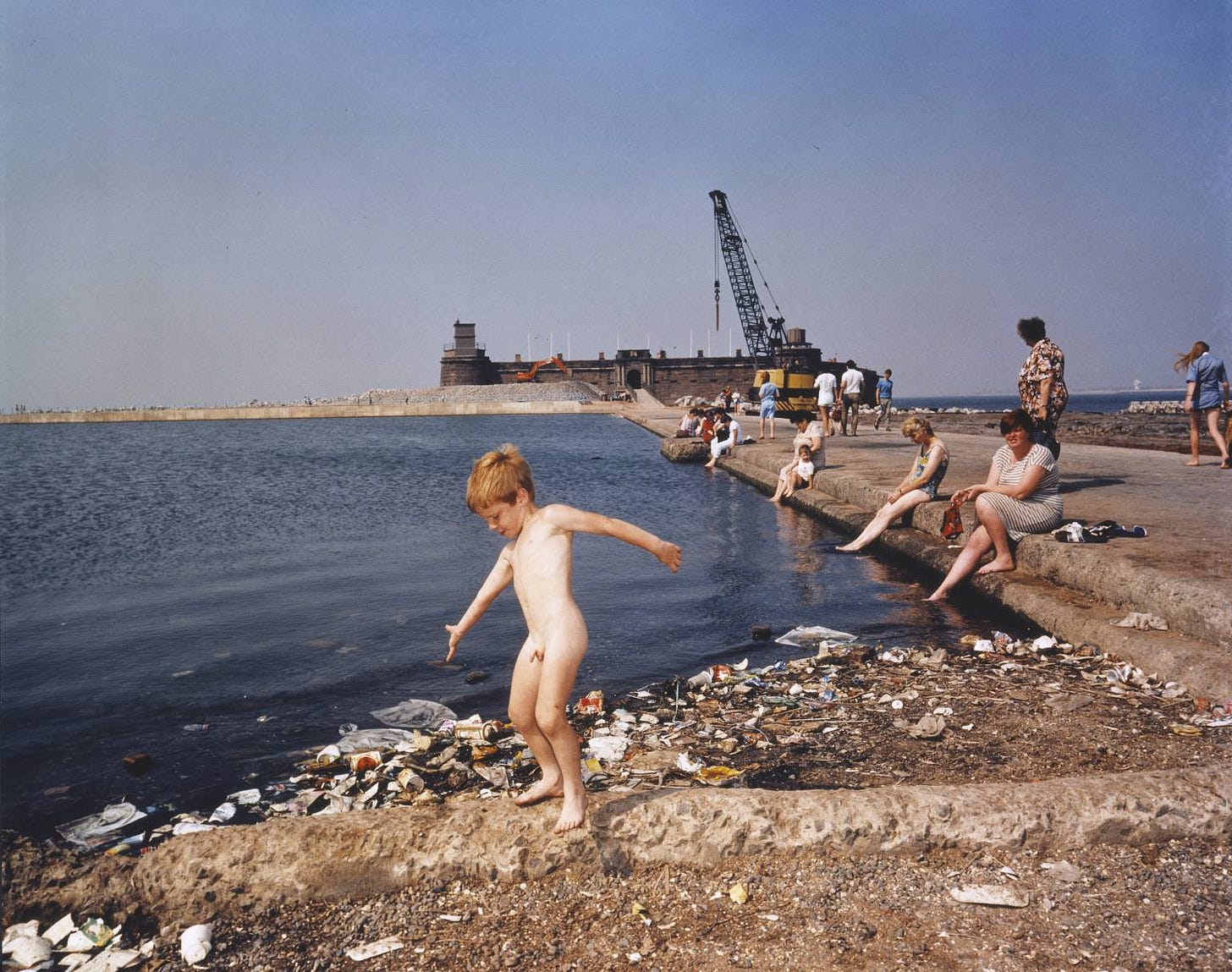
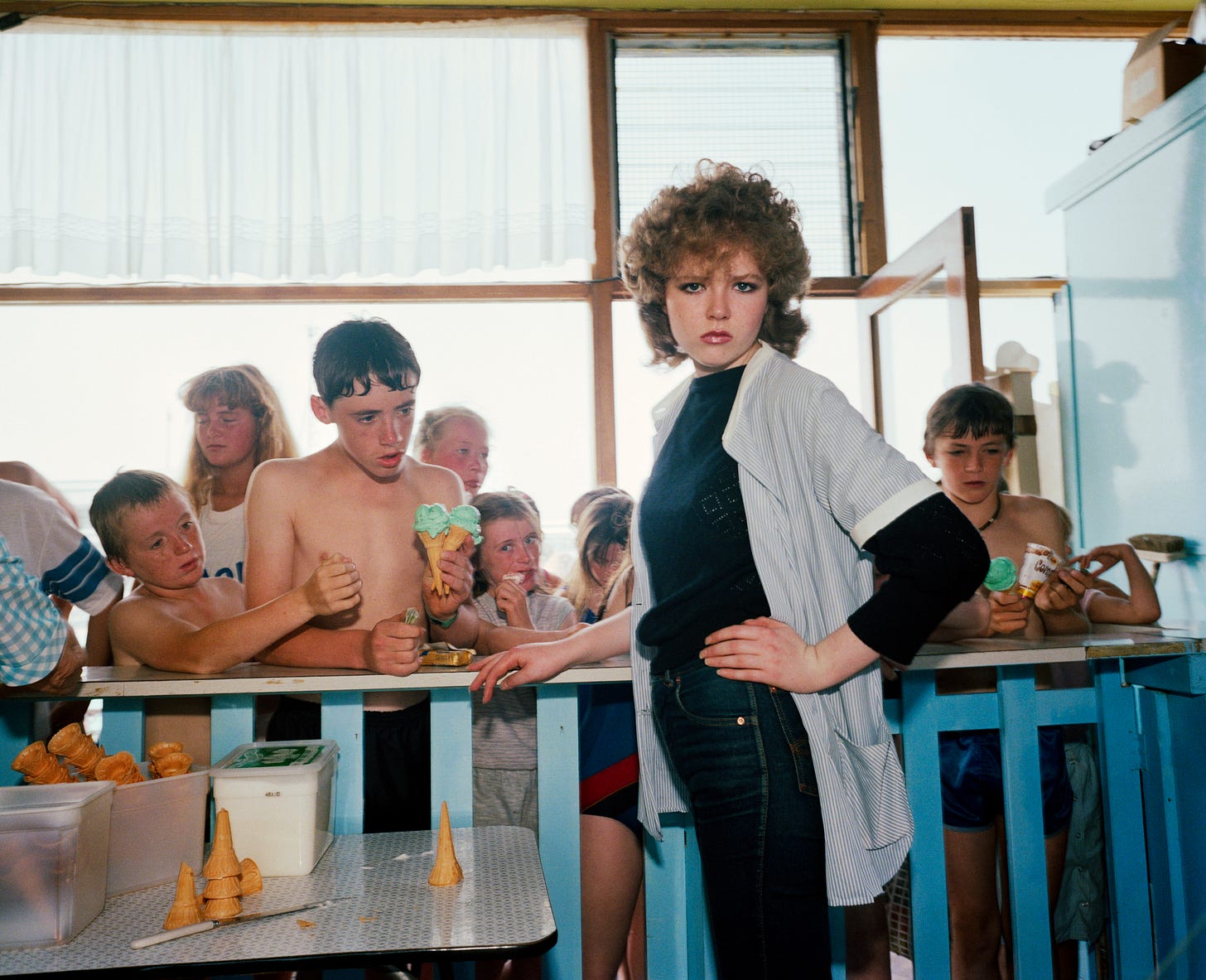
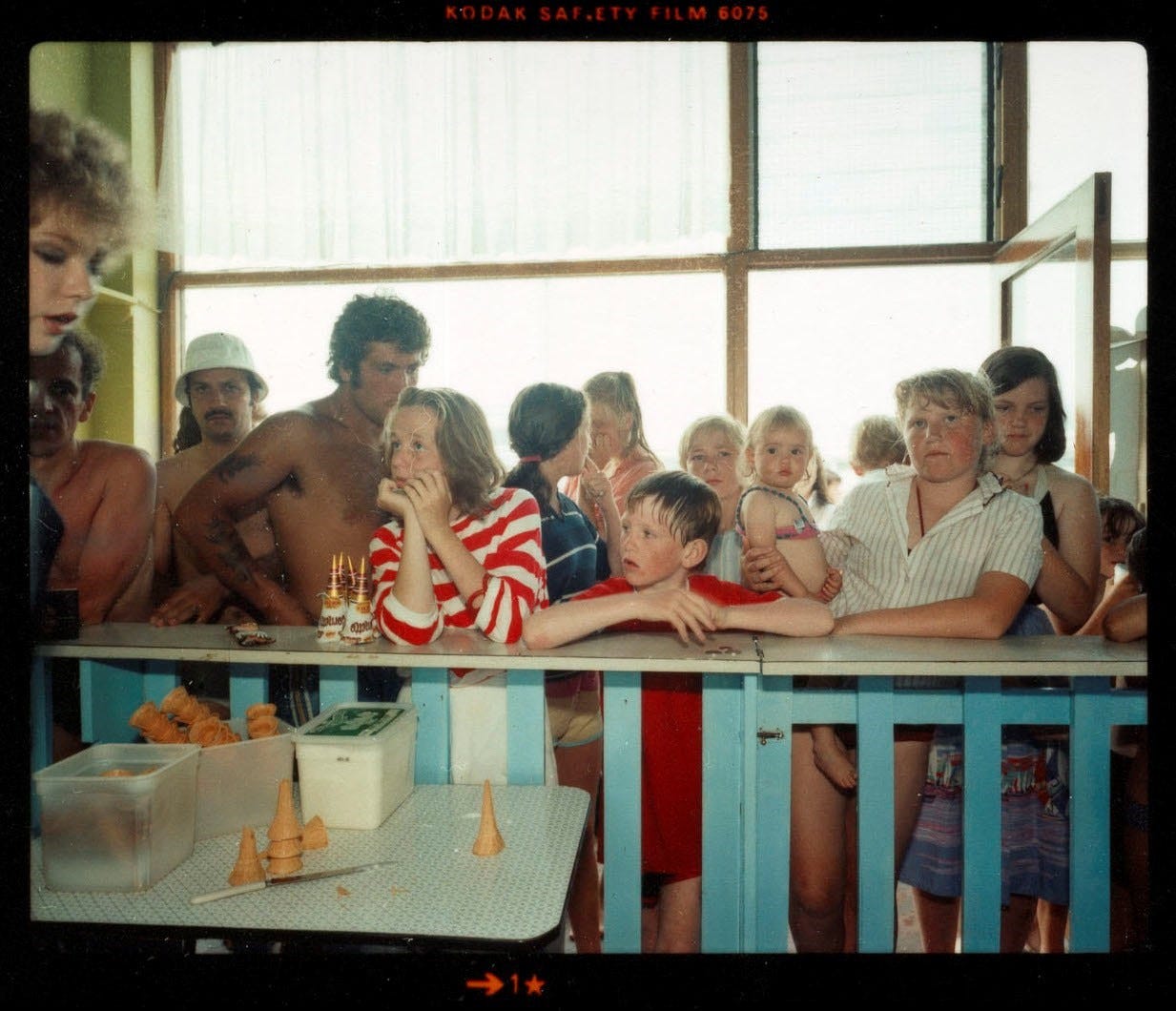
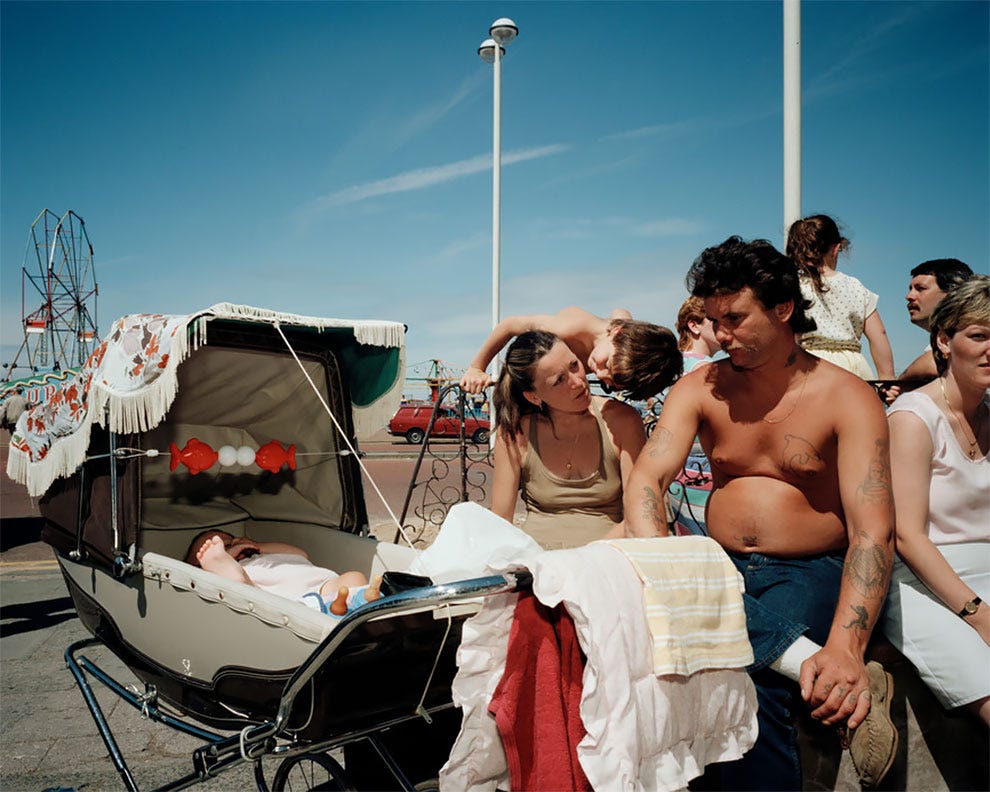
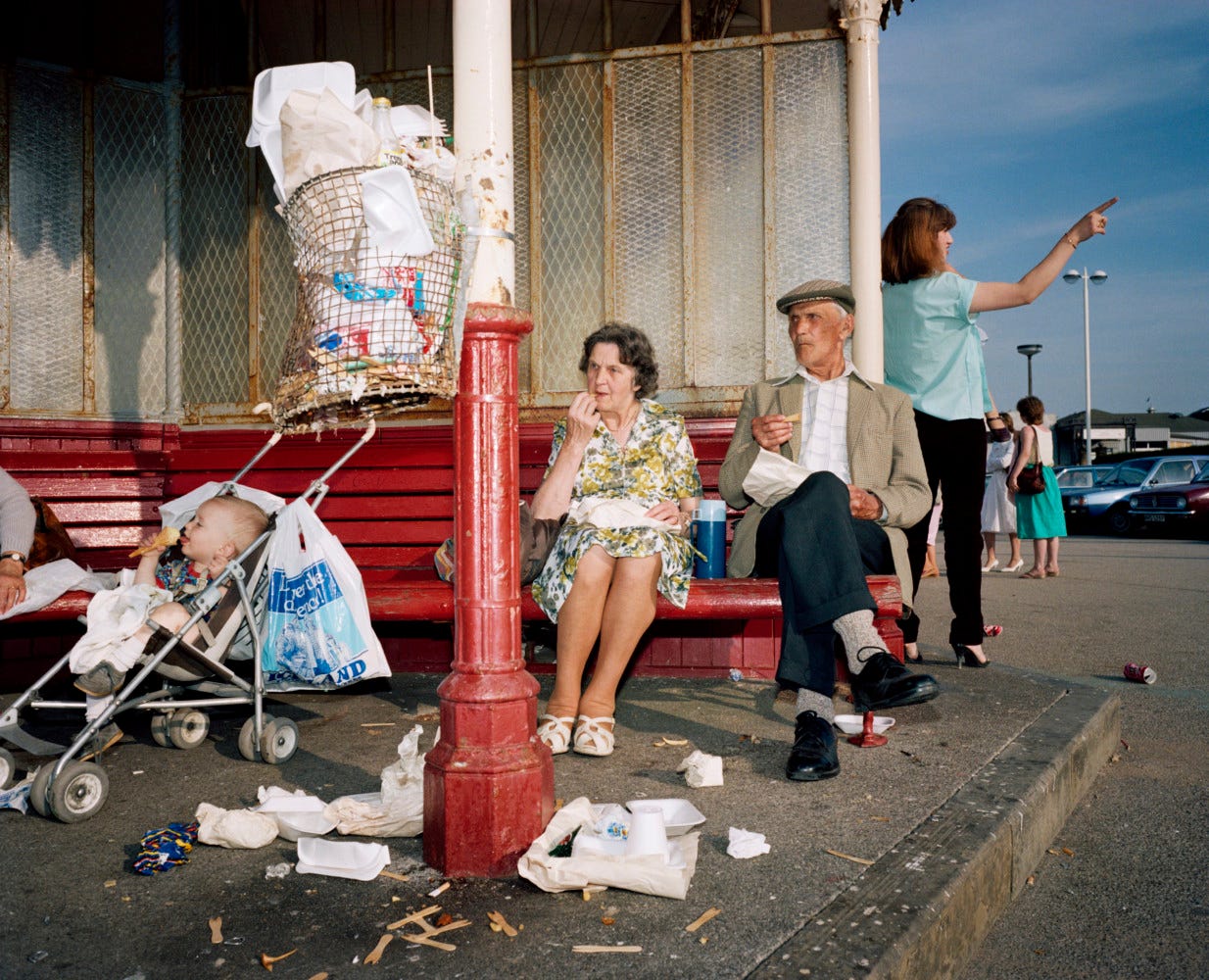
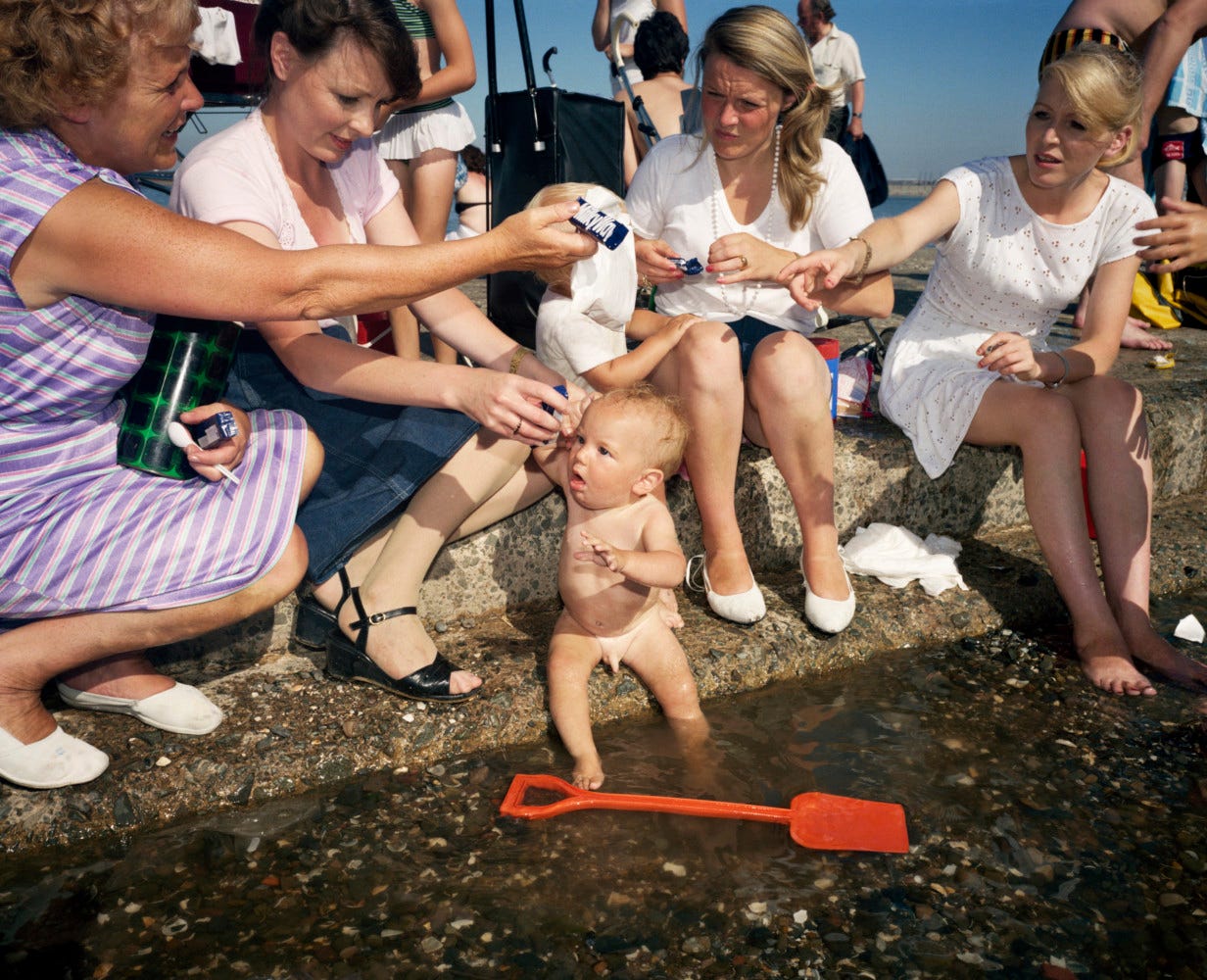
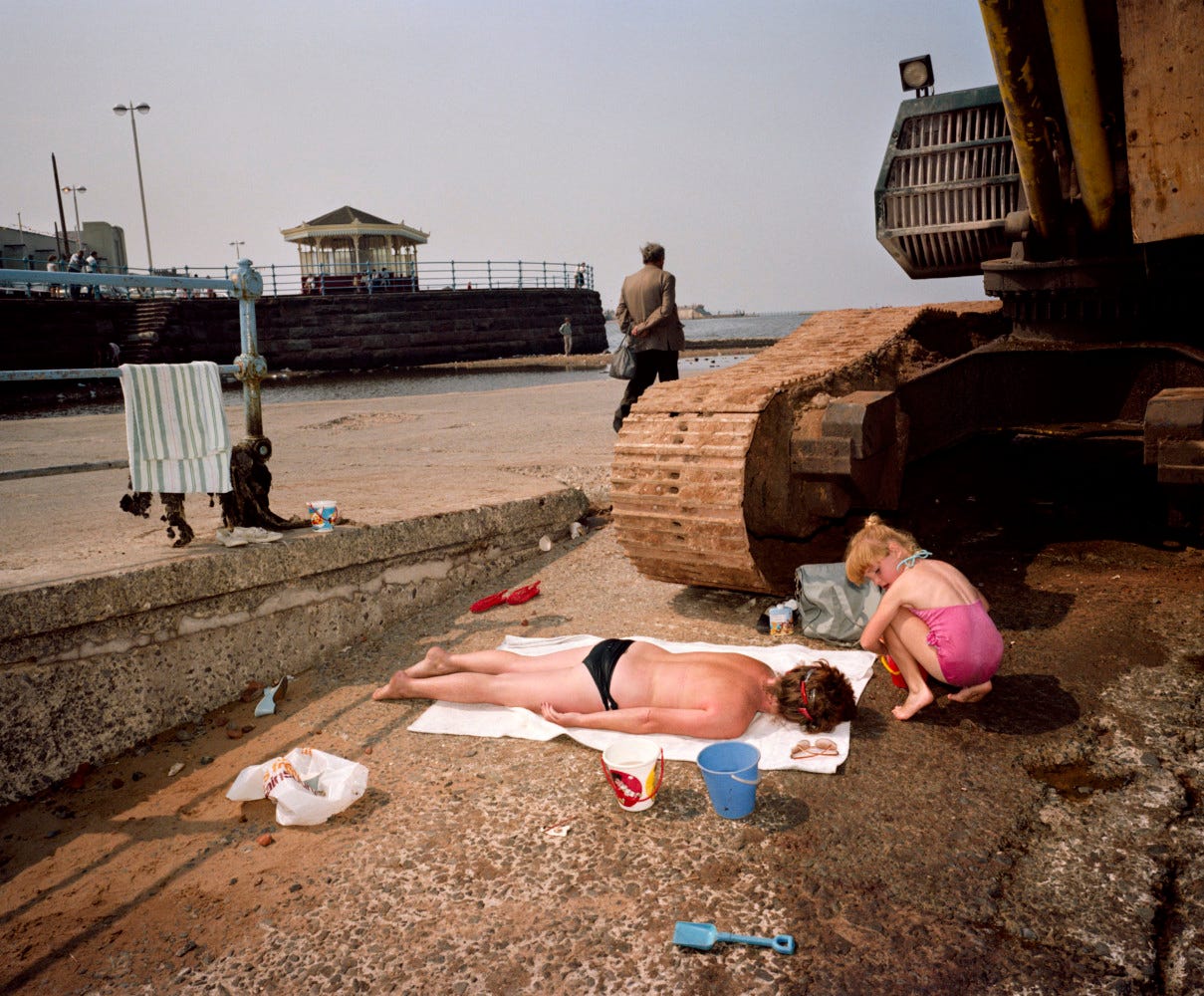
This is beautifully written. I was also born in 1981 but in a different country (SouthAfrica) and when I moved to the UK about halfway through my life, couldn't really distinguish how life has changed because it just has, or because I was now in a new place, where things were just different. But I can fully relate to what you're saying here. And even though where I grew up is one of the most dangerous countries in terms of crime, personal assault etc., we were still allowed to play outside with our friends up and down the road, go out by ourselves etc. I shudder looking at today's children walking around with their friends whilst recording Tik Tok videos and not really being with their friends at all. Maybe as an adult generation we are not entirely innocent either. Like you I am hopeful that we will realise that no amount of consumerism will fulfil the need for human connection, that we need our communities as much as they need us and that things will change for the better.
"There is a great boon available to us which was not available in 1981 - namely, the ability to connect with like-minded people at the touch of a few buttons and the clicking of a few mice. One could add to this the ability to access knowledge and wisdom that was simply unknown to the average person born into humble circumstances in a previous era - and to tap into the entire canon of collective human accomplishment in the arts, literature, and so on, to boot."
Finding your post in my inbox in the morning is one of my consolations. Thank you.